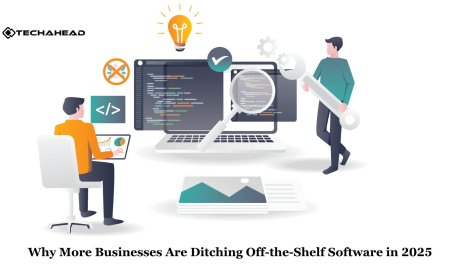How to Budget for a Smart Contract Audit: Hidden Costs and Key Factors

In the rapidly evolving blockchain ecosystem, smart contracts act as the autonomous rule-enforcers of decentralized applications (dApps). They execute transactions, manage logic, and enforce agreementsall without human oversight. But with autonomy comes risk. Smart contracts are vulnerable to bugs, logic flaws, and exploits that can lead to devastating financial losses.
A single vulnerability can cost millions and irreparably damage trust. Thats why smart contract audits are now a fundamental requirement before launching any decentralized product. Yet, budgeting for an audit is not always straightforward. Many startups underestimate the cost, overlooking hidden factors that influence pricing and quality.
This blog breaks down the real cost of smart contract audits, uncovers hidden pricing variables, and explains what to include in your audit budget.
What Goes Into a Smart Contract Audit?
Before diving into the numbers, it's essential to understand what a smart contract audit involves. An audit is not just a quick scan or a run-through of the code. It is a comprehensive security evaluation conducted by experts who scrutinize the contracts logic, structure, and attack surfaces.
Auditors analyze:
-
Vulnerabilities like reentrancy, overflow, front-running
-
Gas inefficiencies
-
Inconsistent logic or flawed incentives
-
Misuse of access controls
-
Attack vectors unique to DeFi, DAOs, or NFTs
An audit report typically includes a severity-based list of findings, recommendations for fixes, and follow-up validation after the project team implements changes.
This thoroughness takes time, effort, and expertisemaking budgeting an essential step in project planning.
The Average Smart Contract Audit Cost: A Range with Many Variables
Theres no one-size-fits-all price tag for smart contract auditing. On average:
-
Basic audits for simple contracts: $3,000 $10,000
-
Mid-level audits for medium complexity dApps: $10,000 $30,000
-
High-complexity audits for large DeFi protocols or DAOs: $30,000 $100,000+
These are baseline figures, and real costs vary based on the following key factors.
Key Factors That Affect Smart Contract Audit Pricing
1. Code Complexity and Length
The more lines of code, the more time it takes to review. Complex dApps with many integrated modules, external dependencies, and cross-contract calls take longer to audit than a simple ERC-20 token.
Auditors often charge based on lines of code (LOC), functionality modules, or risk levels. Expect higher costs for features like:
-
Custom staking logic
-
Cross-chain interactions
-
Flash loan integrations
-
Oracles and time-based mechanics
2. Type of Project (DeFi, NFT, DAO, etc.)
Different contract types pose different risks:
-
DeFi protocols require intensive economic and logic checks
-
NFT platforms may need royalty logic, metadata management, and marketplace verification
-
DAOs need governance security and voting mechanisms examined
The more specialized your smart contracts purpose, the more expertise and time the audit will requireaffecting the cost.
3. Audit Firm Reputation and Experience
Top-tier audit firms like Trail of Bits, CertiK, Hacken, OpenZeppelin, ConsenSys Diligence, or Quantstamp charge a premium because of their track record, institutional credibility, and skilled teams.
A reputable firm offers:
-
Proven audit frameworks
-
Formal verification options
-
Access to white-hat researchers
-
Industry-accepted reporting standards
While smaller or freelance auditors are cheaper, the audit quality may vary, and their reports might not hold the same weight for investors or listings.
4. Urgency of Delivery (Timeline)
If you're under a tight launch deadline, be ready to pay more. Rush audits often incur an extra cost of 20%50% over standard pricing. Auditors must reallocate resources or work overtime to meet aggressive timelines.
Always account for a buffer window of 24 weeks for proper audit scheduling, execution, and remediation.
5. Number of Audit Rounds Required
Audits are rarely a one-and-done task. After the initial review, your developers implement changes. Auditors must re-audit the revised codewhich may be billed separately, depending on the firm.
Some firms offer up to two revisions in their initial quote. Others charge incrementally for each new round of verification.
If your code is error-prone or under rapid iteration, budget for multiple audit rounds to avoid surprises.
Hidden Costs You Might Miss in Audit Planning
Beyond the quoted audit price, several less obvious costs can affect your overall budget.
1. Pre-Audit Preparation Costs
Auditors expect clean, well-documented code. If your codebase lacks clarity or has no test coverage, you'll need to invest time (and possibly resources) to make it audit-ready.
This may include:
-
Writing documentation
-
Increasing unit test coverage
-
Refactoring messy or redundant code
-
Internal code reviews
If you skip this step, auditors may take longeror reject your project entirelyleading to delays and higher costs.
2. Post-Audit Fix Implementation
Fixing vulnerabilities found during the audit may involve deeper development work than expected. This can stretch the dev timeline, increase technical debt, or even require architectural redesignespecially if critical issues are found late.
You should budget extra development hours post-audit, even if your code looks good on the surface.
3. Audit Report Verification for Investors and Launch Platforms
Top exchanges, launchpads, or institutional investors often want to see audits from recognized firms. If you're audited by a lesser-known provider, you may have to redo the audit with a more reputable firm, essentially doubling your costs.
Consider the strategic value of a credible audit in investor negotiations and platform listing requirements.
4. Security Bounty Programs Post-Audit
Some projects extend their security coverage by offering bug bounties via platforms like Immunefi. While this is technically not part of the audit itself, it adds another security layer and budget consideration.
Bounties typically range from $1,000 to $100,000+ depending on severity and exploit potential. If you want comprehensive coverage, factor bounty payouts into your total audit-related spending.
Tips to Optimize Your Smart Contract Audit Budget
1. Audit Early, Iterate Later
Dont wait until the last minute. Include security review in your early development roadmap, ideally after a functional MVP is ready. This allows you to implement low-cost design changes before hardening your architecture.
2. Choose Audit Firms Based on Project Stage
For early-stage or MVP versions, you can opt for smaller firms or individual auditors to catch low-hanging vulnerabilities. Later, when you're closer to a token launch or mainnet release, invest in a top-tier audit firm to enhance credibility.
3. Bundle Audits for Discounted Pricing
If you have multiple contracts or a roadmap with future upgrades, discuss bundled pricing with audit firms. Committing to a long-term relationship can secure better rates over time.
4. Use Automated Tools as a First Layer
Before engaging auditors, run your code through static analyzers like Slither, MythX, or Securify. This can fix basic bugs and reduce the scopeand costof manual review.
Just remember: automated tools are helpful but not a substitute for professional auditing.
Conclusion: Treat Auditing as a Strategic Investment, Not a Cost
Budgeting for smart contract audits goes beyond estimating a flat service fee. It involves understanding your codes complexity, the kind of firm you work with, the time it takes, and how security fits into your larger go-to-market strategy.
While prices vary widely, underinvesting in audits can result in exploits, investor distrust, and irreversible financial losses. A well-planned audit not only secures your code but also boosts your project's credibility with users, investors, and exchanges.
Ultimately, a robust auditing budget is an investment in the long-term health of your blockchain ventureand potentially the difference between success and failure in the decentralized space.






































